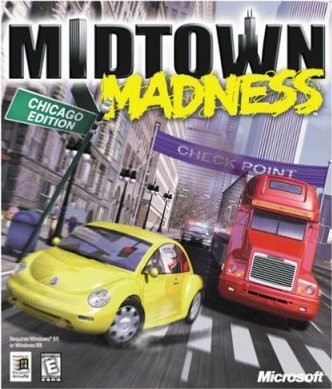I’ve been reading about game development lately. It’s fascinating. I’m sure there is much that conventional developers a nd testers could learn from the games industry. Designers need to know their users, how they think and what they expect. That’s obvious, but we’ve often only paid lip service to these matters. The best game designers have thought much more seriously and deeply about the users than most software developers. I came across this in a blog by Chris Bateman, the game designer, and it made me think about how testing has traditionally been conducted.
nd testers could learn from the games industry. Designers need to know their users, how they think and what they expect. That’s obvious, but we’ve often only paid lip service to these matters. The best game designers have thought much more seriously and deeply about the users than most software developers. I came across this in a blog by Chris Bateman, the game designer, and it made me think about how testing has traditionally been conducted.
“Ramon Romero of Microsoft’s Games User Research showed footage of various random people playing games for the first time. I was particular touched by the middle aged man who drove around in Midtown Madness as if he was playing a driving simulator. ‘This is a great game’, he said, as he stopped at a red light and waited for it to change.”
Ridiculous? Treating a maniacal, race game as a driving simulator? Maybe, but I’m not sure. That user was enjoying himself, playing the game entirely in line with his expectations of what the game should be doing.
The story reminded me of testers who embark on their testing armed with beliefs that are just as wildly misplaced about what the game, sorry, the application should be doing. They might have exhaustive scripts generated from requirements documents that tell them exactly what the expected behaviour should be, and they could be dangerously deluded.
Most of my experience has been with financial applications. They have been highly complicated, and the great concern was always about the unexpected behaviour, the hidden functionality that could allow users to steal money or screw up the data.
Focusing on the documented requirements, happy paths and the expected errors is tackling an application like that Midtown Madness player; driving carefully around the city, stopping at red lights and scrupulously obeying the law. Then, when the application is released the real users rampage around discovering what it can really do.
Was that cheerfully naïve Midtown Madness player really ridiculous? He was just having fun his way. He wasn’t paid a good salary to play the game. The ones who are truly ridiculous are the testers who are paid to find out what applications can do and naively think they can do so by sticking to their scripts.
About The Author
James Christie is a software test consultant based in Perth, Scotland. James principal area’s of interest include how to incorporate usability engineering techniques into software testing as well as governance issues in testing.
